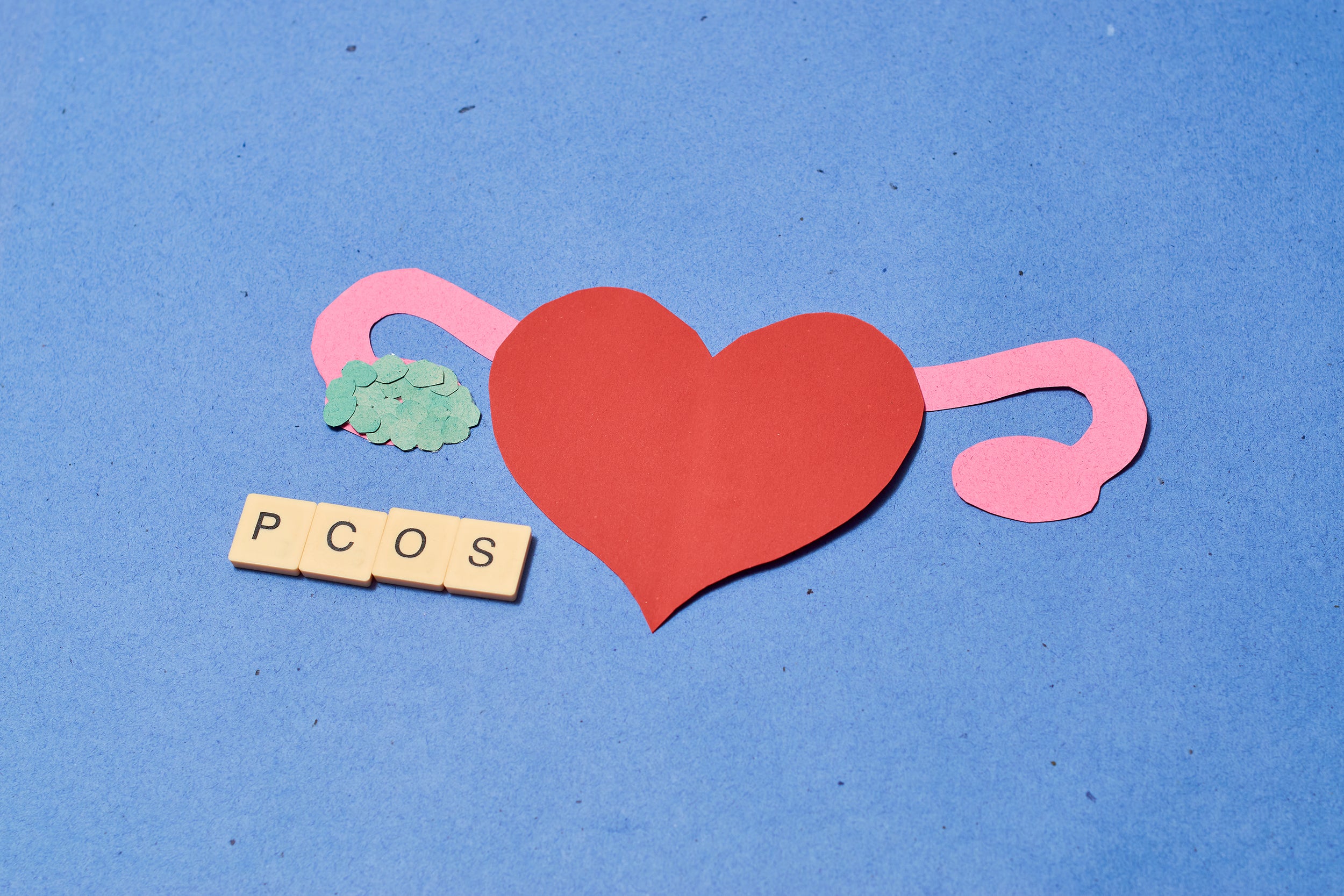Blog /Understanding PCOS and Fertility: Can You Get Pregnant Naturally?
Understanding PCOS and Fertility: Can You Get Pregnant Naturally?
- by Heidi Wright, BSN, RN, PCCN June 20, 2023 5 min read

⭐️ 2-Kit Bundle on sale now!⭐️
Menu title
This section doesn’t currently include any content. Add content to this section using the sidebar.
Your headline
Image caption appears here
$49.00
Add your deal, information or promotional text

You may have recently gotten the diagnosis of PCOS from your doctor or are exploring symptoms and trying to figure things out. You may be wondering, “What is PCOS anyways? Will it affect my chance to get pregnant?” Polycystic Ovary Syndrome (PCOS) affects approximately 1 in 10 people with ovaries of reproductive age and is a leading cause of infertility. Just because you have PCOS does not mean you won’t be able to get pregnant; however, you may need additional support and treatment. PCOS is a hormonal disorder that can lead to an imbalance in sex hormones, causing irregular menstrual periods, ovarian cysts, and difficulty ovulating. Difficulty ovulating is what makes it difficult to get pregnant. In this article, we’ll discuss what you need to know about PCOS and trying to get pregnant. We’ll explain what PCOS is, how it affects your fertility, and natural ways to boost fertility with PCOS. We will also explore medical treatments for PCOS and infertility, coping strategies, and the best resources we’ve found for PCOS and infertility support.
PCOS is a complex hormonal disorder that affects the ovaries and is associated with a variety of symptoms such as irregular menstrual cycles, weight gain, and excessive hair growth. It can occur anytime after puberty and is often diagnosed when people are looking for the reason they are having trouble getting pregnant (mostly in the 20s to 30s age range). PCOS also affects fertility as it can cause a hormonal imbalance, which can lead to anovulation, a condition in which the ovary does not release an egg regularly. The ovaries are supposed to be producing and dropping that precious cargo – eggs – every month during a healthy menstrual cycle! However, with PCOS, the eggs may not develop as they should or may not be released during ovulation, which can lead to missed or irregular menstrual periods. These irregular periods can result in infertility, and that’s why PCOS is one of the most common causes of infertility. In addition, PCOS can cause the development of small fluid-filled sacs called cysts in the ovaries. No egg dropping? No egg to fertilize, and no pregnancy that cycle. That’s the difficulty with PCOS and trying to get pregnant.
Some of the most common symptoms of PCOS include an irregular menstrual cycle, which can cause missed periods or fewer than eight periods per year, or periods that come every 21 days or more often. People with PCOS may experience hirsutism, a condition that results in excessive hair growth on the face, chin, or other parts of the body where hair would not normally grow. Other symptoms of PCOS include acne on the face, chest, and upper back, thinning hair or hair loss on the scalp, weight gain or difficulty losing weight, darkening of the skin along neck creases, in the groin, and underneath breasts, and small excess flaps of skin called skin tags in the armpits or neck area.
To be diagnosed with PCOS, someone must have at least two out of three of the following criteria: irregular menstrual periods, signs of high androgen levels (such as excess hair growth), and ovarian cysts detected on ultrasound. It's important to see a healthcare provider for an accurate diagnosis and to discuss treatment options.
The diagnosis of PCOS typically involves a combination of medical history, physical examination, and laboratory tests.
Laboratory tests: Blood tests can be used to measure hormone levels, including testosterone and other androgens, as well as glucose and insulin levels. An ultrasound may also be performed to examine the ovaries for cysts and check their size and appearance.
Now we’re getting to the good news. While PCOS can make it more difficult to conceive, it is still possible to get pregnant with PCOS. However, people with PCOS may experience challenges in getting pregnant and may require additional support and assistance. There are several medical treatments available for PCOS and infertility. One of the most common treatments for those suffering from PCOS is ovulation induction. Ovulation induction medication is for people who are not ovulating or have irregular menstrual cycles. These types of medications stimulate the release of hormones that tell the ovaries to release eggs. Ovulation induction medication can be helpful whether you are trying to conceive through timed intercourse, fertility procedures in a clinic such as IUI, or home intravaginal insemination with the Mosie Baby Kit.
There are some great options to naturally give your fertility a boost if you have PCOS. Regular physical activity that results in weight loss (5-10% of body weight or more) may help regulate menstrual cycles, reduce insulin resistance, and improve fertility. It’s also a great natural mood booster! A healthy diet and lifestyle changes may help manage PCOS symptoms and improve your overall health.
Medical treatments for PCOS and infertility are specific to each person’s medical situation and may include lifestyle modifications, such as nutrition and weight management, as well as medications, such as Clomiphene, which is used to induce ovulation. Assisted reproductive technologies such as intrauterine insemination (IUI) and in-vitro fertilization (IVF) are also used for those with PCOS and infertility. The best place to start is to discuss this with your healthcare provider.
Coping with PCOS and infertility can be stressful and you shouldn’t have to face it alone! Seek out emotional support and resources during your journey. People with PCOS and infertility can benefit from joining support groups, seeking counseling, and learning coping strategies to manage the emotional impact and stress of infertility.
PCOS is a common hormonal disorder that affects fertility, and it’s commonly diagnosed in your 20s and 30s because that’s when people notice they are having trouble getting pregnant and seek out medical advice. There are treatments and support available for those wanting to get pregnant with PCOS! Don’t lose hope. People with PCOS can get pregnant on their own but may require additional support and assistance. Natural ways to boost fertility with PCOS include exercise and proper nutrition, while medical treatments may include ovulation induction and assisted reproductive technologies. We are here for you as you continue to seek out resources for coping with PCOS and infertility. For more information, check out our Conception 101 article Trying to Conceive: How to Get Pregnant with PCOS.
If you’re struggling on your fertility journey, know that you’re not alone! We are always here if you have any questions or need support. Sending big hugs and good vibes your way.
